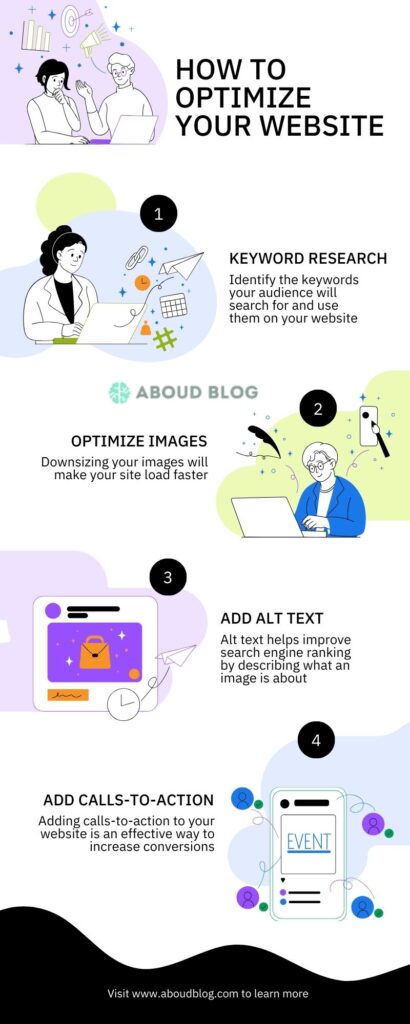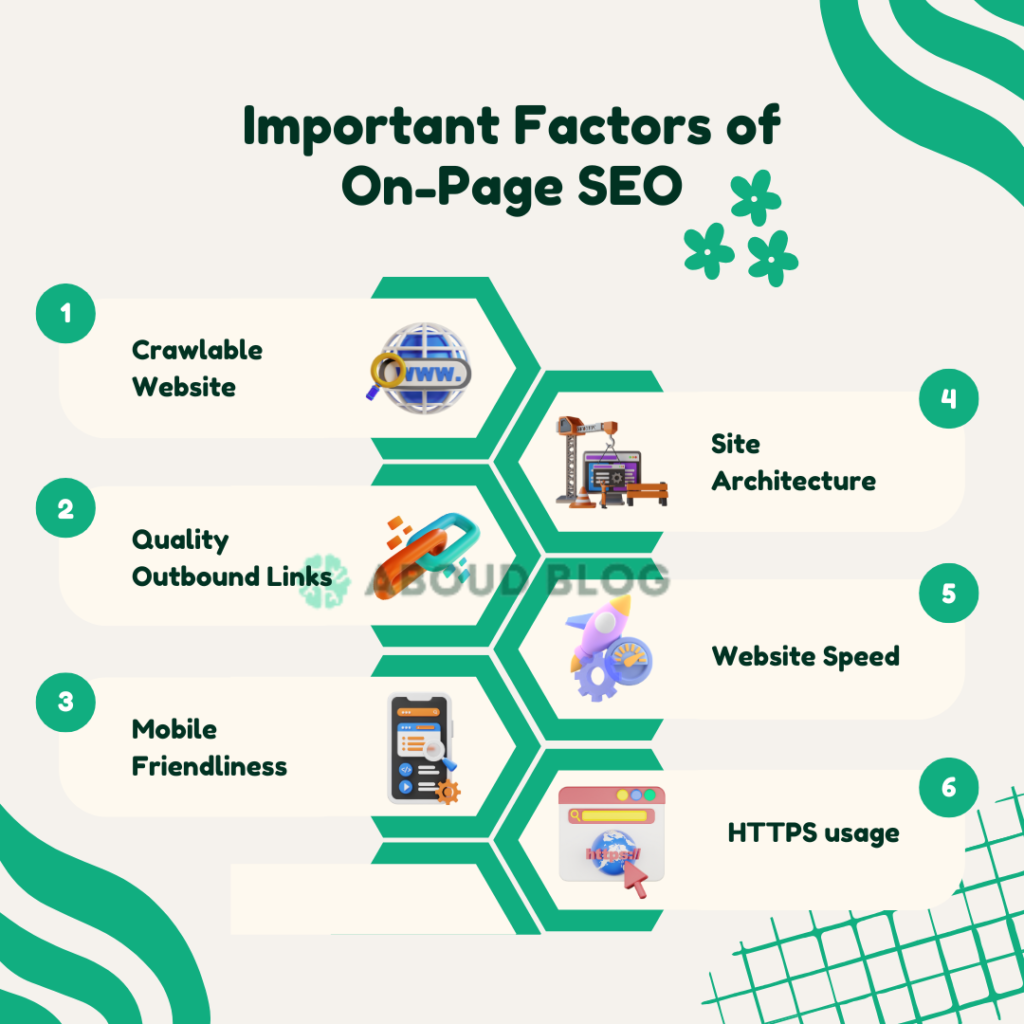What is SEO? Decoding Search Engine Optimization
What is SEO? It’s the secret sauce for online success. SEO, or Search Engine Optimization, helps websites rank higher on search engines like Google. This boosts visibility and drives traffic to your site. Understanding SEO is crucial for anyone wanting to grow their online presence.
Mastering SEO can open doors to more visitors and potential customers. It involves using specific keywords, optimizing content, and improving site structure. The better your SEO, the more likely people will find you. In this post, we’ll break down the basics of SEO, its importance, and how you can start implementing it today. Get ready to elevate your website game!
Key Takeaways
- SEO stands for Search Engine Optimization, which helps improve your website’s visibility on search engines.
- There are different types of SEO, including on-page, off-page, and technical SEO; each plays a unique role in boosting your site’s performance.
- The SEO process involves keyword research, content creation, and link building, so make sure to follow these steps to enhance your strategy.
- Remember that SEO is not a one-time task; it requires ongoing effort and adjustments to stay effective over time.
- Regularly analyze your website’s performance using tools like Google Analytics to identify areas for improvement.
- Stay updated with SEO trends and algorithm changes to keep your strategies relevant and effective.

Understanding SEO Basics
Define SEO
SEO stands for “search engine optimization.” It involves enhancing website visibility in search engine results. The main goal is to attract more visitors from platforms like Google and Bing for site SEO and SEA. Websites that rank higher are more likely to be clicked. Optimizing content is crucial. It must be relevant to the target audience. This means using keywords that potential visitors search for. Well-optimized pages can lead to increased traffic.
Search engines use algorithms to decide which pages to show. These algorithms look at various factors. Content quality, site speed, and mobile-friendliness matter greatly. Understanding these factors helps in creating effective SEO strategies.
SEO vs SEM and PPC
SEO is an organic strategy. It focuses on improving rankings without paying for ads. In contrast, SEM includes paid advertising methods. SEM aims to increase visibility quickly through sponsored links.
PPC, or pay-per-click, is a type of SEM. Advertisers pay each time someone clicks on their ad. This method drives immediate traffic to a website. However, it can become costly over time.
SEO offers long-term benefits compared to PPC campaigns. While PPC provides quick results, it stops when funding ends. SEO builds lasting visibility and credibility. Organic traffic continues even after initial efforts. Businesses often find value in investing in SEO for sustainable growth.
Importance in Digital Marketing
SEO plays a critical role in digital marketing. It serves as a major channel for driving organic traffic to websites. High-quality SEO leads to measurable business results. Increased brand awareness follows as more people discover the site.
Effective SEO strategies can boost engagement and conversion rates. Companies that invest in SEO often see improved sales and customer loyalty. As online competition grows, businesses rely more on SEO. It has become a cost-effective marketing strategy in today’s digital landscape.
The importance of SEO continues to rise with evolving technology. Search engines constantly update their algorithms. Staying informed about these changes is essential for success.
Types of SEO
Technical SEO
Technical SEO involves optimizing the backend of a website. Key elements include site speed, mobile-friendliness, and secure connections (HTTPS). A fast-loading site keeps users engaged. Google prioritizes sites that load quickly.
Mobile-friendliness is crucial as more users browse on mobile devices. Websites must adapt to different screen sizes. Secure connections build trust with visitors. HTTPS encrypts data, making it safer for users.
Structured data helps search engines understand a website’s content better. It provides context to search engines about the information on the page. XML sitemaps guide crawlers through the site structure. They ensure all pages are indexed properly.
On-page SEO
On-page SEO focuses on optimizing individual web pages. This improves both rankings and user experience. Keyword research plays a vital role here. Identifying relevant keywords helps create valuable content.

Placing keywords naturally within the content is essential. Overusing them can lead to penalties from search engines. Meta tags provide concise information about the page content. They appear in search results and influence click-through rates.
Headers organize content, making it easier for readers to navigate. Image alt texts describe images for search engines, improving accessibility and SEO effectiveness. All these elements work together to enhance a webpage’s visibility.
Off-page SEO
Off-page SEO deals with actions taken outside your website. Link building is significant for establishing authority and credibility. Quality backlinks from reputable sites signal trustworthiness to search engines.
Sharing content on social platforms increases visibility and traffic to the website. Public relations efforts also contribute by generating buzz around your brand.
Online reviews and ratings impact overall search visibility. Positive reviews improve reputation and can lead to higher rankings in local searches. Search engines consider these factors when determining how to rank websites.
The SEO Process
Search Engine Function
Search engines follow a basic process to deliver results. They crawl web pages using bots. These bots explore the internet and gather information. After crawling, search engines index the content. This means they store it in a massive database for quick access. Finally, they rank the pages based on relevance.
Algorithms play a crucial role in this ranking process. They analyze various factors to determine which pages are most relevant to a user’s query. Understanding search intent is vital for effective SEO strategies. When businesses know what users want, they can create better content that meets those needs.
Research and Planning
Conducting keyword research is essential for any SEO effort. It helps identify target phrases and topics that potential customers use. This step ensures that businesses focus on the right keywords to drive traffic.
Competitive analysis also plays a significant role in planning. By examining competitors, businesses can understand their market positioning. This knowledge helps refine their SEO strategy. A comprehensive SEO plan should be based on these research findings to maximize effectiveness.
Implementation Steps
Executing an SEO strategy involves several key steps. First, align content creation with identified keywords. This ensures that the content matches what users search for.
Collaboration among teams is also important during implementation. Content, technical, and marketing teams should work together to ensure consistency. Each team brings unique skills that enhance the overall SEO effort.
Monitoring and Maintenance
Tracking SEO performance is crucial for success. Businesses should use analytics tools to monitor their progress regularly. These tools provide insights into traffic sources and user behavior.
Regular audits help identify areas for improvement in the SEO strategy. Businesses can adjust their tactics based on these findings. Staying updated with algorithm changes and industry trends is necessary as well. Search engine optimization is an ongoing journey that requires constant attention.
Continuous Nature of SEO
Ongoing Optimization
SEO is not a one-time task. Continuous content updates are crucial for keeping information relevant and fresh. Search engines favor sites that frequently update their content. This helps maintain or improve rankings.
Refining keywords is also essential. Performance data shows which keywords drive traffic. Adjusting these keywords based on this data can significantly enhance visibility.
A/B testing different strategies is valuable too. Testing various headlines, layouts, and calls to action helps identify what works best. This process improves SEO effectiveness over time.
Adapting to Changes
Flexibility is vital in SEO. Search engine algorithms change often. These updates can affect how websites rank. Being responsive to these changes is necessary for maintaining a strong online presence.
Monitoring user behavior is equally important. Trends in search queries shift regularly. Keeping an eye on these changes allows businesses to adjust their strategies accordingly.
Regular training and skill development are essential as well. The SEO landscape evolves quickly, and staying informed is key to success. Learning about new tools and techniques ensures that one remains competitive in the field.
Learning and Resources
Many resources are available for improving SEO knowledge. Online courses offer structured learning paths. Websites like Moz and HubSpot provide valuable insights into SEO practices.
Participating in SEO communities can also be beneficial. Forums like Reddit and specialized groups on social media allow the sharing of experiences and tips with others in the field.
Keeping up with industry blogs and publications is crucial for ongoing education. Sites such as Search Engine Journal and Neil Patel’s blog provide the latest news and trends in SEO. Regularly reading these sources keeps skills sharp and knowledge current.
Final Remarks
SEO is your ticket to online visibility. By grasping the basics, exploring its types, and understanding the process, you’re already ahead. Remember, SEO isn’t a one-time deal; it’s a continuous journey. Staying updated and adapting to changes is key to keeping your edge.
Now that you’re equipped with essential SEO knowledge, why not take action? Start optimizing your content today and watch your online presence grow. Dive deeper into each aspect and make SEO an integral part of your strategy. Your success depends on it!
Frequently Asked Questions
What is SEO?
SEO, or Search Engine Optimization, is the practice of enhancing your website’s visibility on search engines. It involves optimizing content, improving site structure, and building backlinks to attract organic traffic.
Why is SEO important?
SEO is crucial because it helps your website rank higher in search results. Higher rankings lead to increased visibility, more traffic, and ultimately, more conversions or sales for your business.
How long does it take to see results from SEO?
Typically, it can take 3 to 6 months to see significant results from SEO efforts. Factors like competition, current website status, and the effectiveness of your strategies all play a role in this timeline.
What are the main types of SEO?
The main types of SEO include On-Page SEO, Off-Page SEO, and Technical SEO. Each focuses on different aspects of optimization to improve your site’s performance in search engine results.
Is SEO a one-time process?
No, SEO is not a one-time process. It requires ongoing efforts to adapt to changing algorithms and market trends. Continuous optimization ensures sustained visibility and traffic over time.
Can I do SEO myself?
Yes, you can do SEO yourself with the right resources and knowledge. Many online guides and tools can help you understand and implement effective strategies without needing professional assistance.
What are backlinks in SEO?
Backlinks are links from other websites that point to your site. They are essential for SEO because they signal credibility and authority to search engines, helping improve your site’s ranking.






